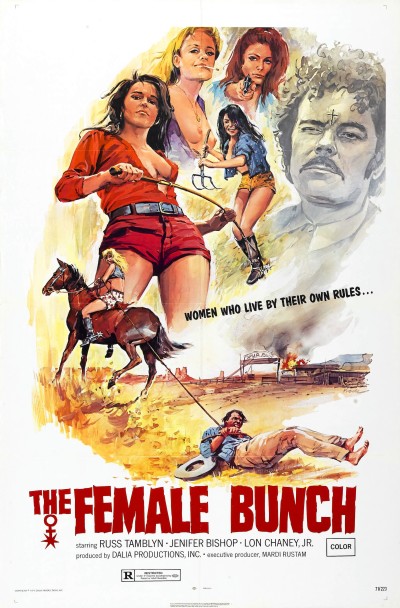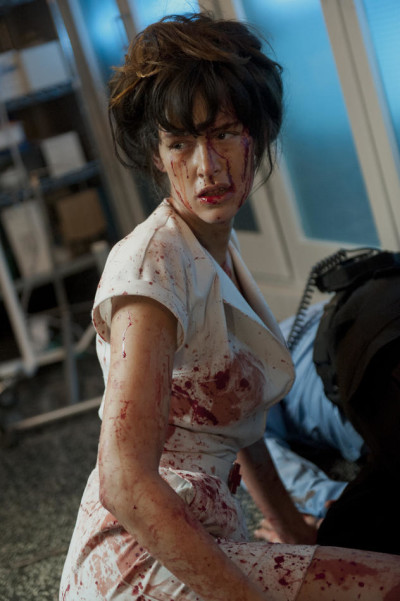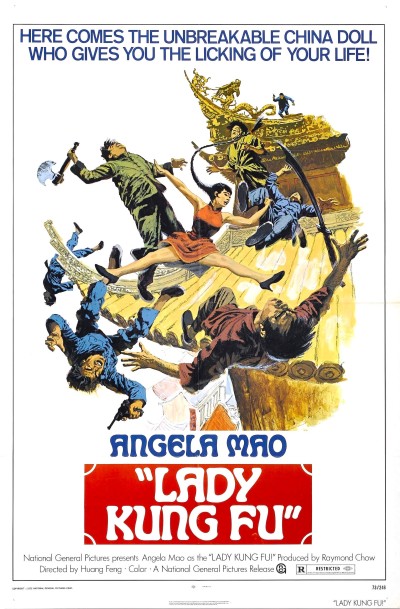★★★★
“Pinky violence = serious business”

 Following on more or less directly from the events of the first part, this sees Maki the Lone Wolf seeking revenge for the death of Midori as she fought against the principal and his reign of terror. Now in charge is Ranko and her gang, who stepped in to occupy the power vacuum, to “keep peace and good order” in the school – along with hunting down the remnants of Midori’s faction. Ranko captures Maki, but our heroine escapes with the unwitting help of Chiaki, one of Ranko’s Demons, and joins Momonga and Third, the last girls standing of Midori’s gang. Chiaki also allies herself with them, knowing Ranko will blame her for Maki’s escape. But can she really be trusted? And can Maki defeat, not only Ranko, but the hardcore delinquents she has recruited to join her, the very worst drawn from schools across Japan: Rakish O-Gin, Kiriko the Praying Mantis and Rinka the Parasol.
Following on more or less directly from the events of the first part, this sees Maki the Lone Wolf seeking revenge for the death of Midori as she fought against the principal and his reign of terror. Now in charge is Ranko and her gang, who stepped in to occupy the power vacuum, to “keep peace and good order” in the school – along with hunting down the remnants of Midori’s faction. Ranko captures Maki, but our heroine escapes with the unwitting help of Chiaki, one of Ranko’s Demons, and joins Momonga and Third, the last girls standing of Midori’s gang. Chiaki also allies herself with them, knowing Ranko will blame her for Maki’s escape. But can she really be trusted? And can Maki defeat, not only Ranko, but the hardcore delinquents she has recruited to join her, the very worst drawn from schools across Japan: Rakish O-Gin, Kiriko the Praying Mantis and Rinka the Parasol.
This is definitely better than the predecessor, mostly because it focuses on Maki. As noted in my previous review, she did a better job of capturing the pinky violence attitude than Midori, and we see that again here – the spirit of Midori shows up to guide Maki at various points, and the difference in their performances is obvious. There’s also more going on in terms of storyline and characters. Chiaki has a subplot about an ailing sister who yearns to see Chiaki become successful, and Ranko’s henchwomen are memorable villains in themselves. In particular, Rinka is a pitch-perfect Gothic Lolita, all frilly dresses and dark eyeliner, but carrying an umbrella which is also an automatic weapon. As the onlookers say while she’s fighting Maki:
A machine-gun parasol? Is she really just a schoolgirl?
She is majoring in technical subjects...
It’s also impressively gynocentric, with little or no male roles whatsoever, and the ones present are little more than drooling, sex-mad imbeciles, easily exploited for the benefit of the female characters.
I think it’s perhaps less obviously a parody, and that works in its favour. Not that it’s any less subtle; for example, early on, Maki’s method of attack is entirely focused on ripping open the tops of her adversaries. But rather than driving the joke into the ground, the makers let it go, and her fights against the higher-level minions are much closer to what you saw in the seventies. You don’t need to have seen part 1 to follow the story here, and the movie even works on its own, rather than requiring significant previous knowledge of the genre. It may be forty years late, but it’s one of the most-entertaining pinky violence films I’ve seen.
Dir: Toshiya Kominami
Star: Akari Asahina, Yoko Fujimura, Saya Kobayashi, Aoi Hozumi






















